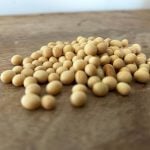The North American fertilizer industry has pledged $7 million to fund a multi-year research effort aimed at measuring and evaluating the economic, social and environmental impacts of 4R Nutrient Stewardship (use of the right fertilizer source at the right rate at the right time and in the right place). The Fertilizer Institute (TFI), the Canadian



